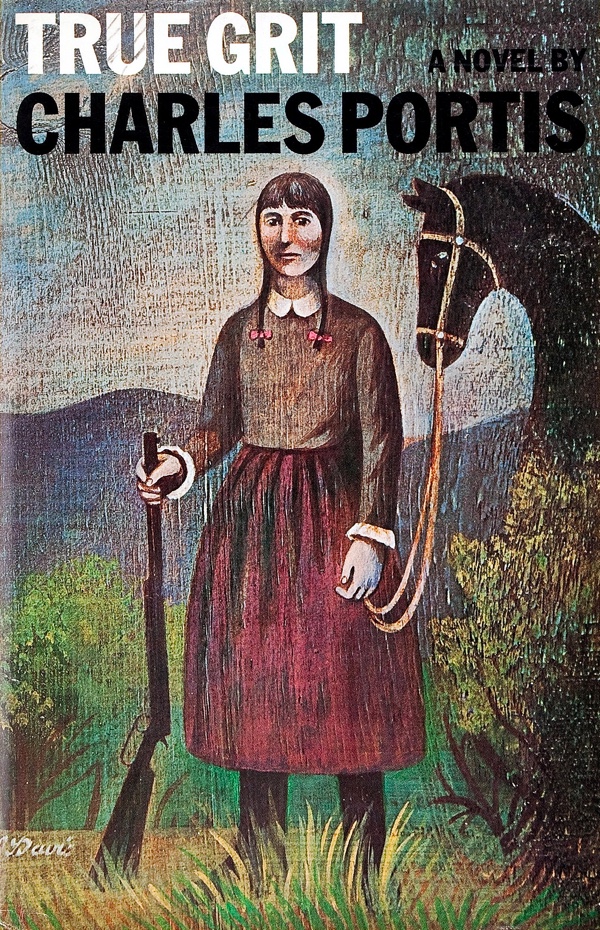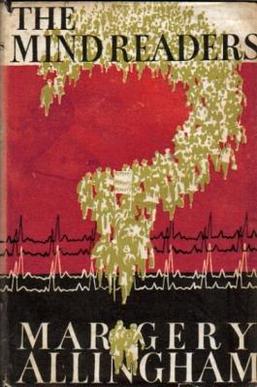Science fiction has a grade inflation problem. I’ll pick up a popular, award winning book surrounded by piles of excited reviews, and half the time I discover it’s… well, okay. A fun read. Good if you’re tired and need something entertaining but not challenging. These books are hard to enjoy for what they are. After the hype I expected, y’know, more.
Arkady Martine’s A Memory Called Empire is one of those books. Technically it’s about coexisting with empire, and cultural hegemony, and how it feels to identify with a culture you don’t belong to and that threatens to absorb your own. It detours into issues of identity and algorithmic bias. But it never manages to be about those things more than superficially. As I’ve grown older I’ve gotten used to books that dive into their themes, come at them from all the angles. A Memory Called Empire stands back from its themes, points, takes a photo, and gets on with the plot.

A Memory Called Empire is a space opera. The protagonist, Mahit Dzmare, is the ambassador from Lsel, an independent space station, to the vast Teixcalaan empire. It’s a cool job; her favorite books are Teixcalaanli—but she doesn’t quite fit in. Stories about an outsider trying to understand and exist in a fictional society are my kind of thing, or one of my kinds of things, so I enjoyed it. It’s not a book I’d recommend to anyone whose thing this isn’t. If this book doesn’t hit one of your “my thing” buttons, there won’t be enough here to keep you going through 470 pages.
A Memory Called Empire is written in close third person, almost all in Mahit’s head, narrating her experiences with journalistic objectivity and effacing the narrator as much as possible. It’s mostly flatly descriptive, sometimes rising to real eloquence (“Empire was empire—the part that seduced and the part that clamped down, jaws like a vise, and shook a planet until its neck was broken and it died.”) sometimes weighed down by awkward lumps (Mahit sees someone eating meat and is “horribly tempted by the smell of it, and a little horrified at the same time”).
Like a movie it keeps a steady pace, skipping the less plotty moments instead of standing back and summarizing. This means the novel can’t cover long stretches of time. So the plot takes mere days to play out, but the pacing is monotonous. The book overexplains things readers could pick up on themselves, mostly Mahit’s theories on what’s going on in other characters’ heads. In one of the novel’s rare flashes of humor Mahit comes across someone named “Thirty-Six All-Terrain Tundra Vehicle.” A more confident book would have dropped the name onto the page, trusted the reader to understand why it’s funny, and moved on. Here, Mahit and her local aide/obligatory love interest Three Seagrass spend painfully earnest paragraphs explaining the joke.[1]
The novel doesn’t move back or forth in time—Mahit rarely thinks about anything not in front of her. As a result, though the novel is filtered through her POV she’s a bit of a cipher. She recalls the past fleetingly, and only when it relates to the present. All we learn of her family is that her parents are alive and she has a brother, and she seems about as emotionally attached to these people as to a toaster oven. The brother is mentioned twice, briefly, and we don’t even learn his name!
To be clear, vague characterization isn’t always bad. Sometimes it’s what a story needs to accomplish its goals: a detective novel where most characters are types, an allegory where they’re stand-ins for ideas. But it doesn’t work with the story A Memory Called Empire is trying to be, about how Mahit feels navigating a culture she loves but isn’t part of. To really get those feelings, we need to get Mahit. In practice, Mahit feels like one of those old-fashioned space opera heroes written more as identification figures for the audience than characters in their own right—anyone in this book’s audience could imagine ourselves in her place. She doesn’t have weird foibles or rough edges; where she doesn’t need a definite characteristic, she’s nonspecific.
I also didn’t get a sense of Mahit’s class. I’m not sure whether Lsel is a classless society or whether it didn’t occur to the author to consider it. We don’t learn much about Lsel. (The narration has no opinions of its own, so if a POV character doesn’t think about something we don’t know it. Science fiction needs more omniscient narrators!) Lsel apartments are 3 by 3 by 9—but nine what? You have to read closely to confirm the book means feet. And for someone whose idea of private space is a sleeping pod, Mahit’s psychology feels awfully similar to an average 21st century American’s. She has a standard apartment on Teixcalaan and occasionally thinks about its size, but doesn’t feel weird about having multiple rooms to herself. Water is precious on Lsel and she’s boggled at decorative fountains, but surprisingly unsurprised by a shower. Mahit is inconsistently foreign.
She’s also 26. That’s young for an ambassador to an empire Lsel fears might annex it. The Lsel Stationers have devices called imagos that grant people the memories and skills of others, like Deep Space Nine‘s Trill. Mahit is carrying the imago of the previous ambassador; she was the only person available who could integrate it. Even so, it’s interesting no one thinks Mahit is young for such a sensitive position. Do young stationers with old memories often have important jobs? Or is this just another example of science fiction’s youth obsession? The Trill have customs and ceremonies centered around their symbionts but Mahit seems to think of imagos as tools, like iPhones. The ability to pass on their ancestors’ memories is a radical departure from human norms. Stationer culture seems hardly affected.
The same is true of Teixcalaan. We’re told Teixcalaanli poetry is central to its culture, but by the end of the novel we still don’t know much about it. We get only brief snatches and bare descriptions of poems. Quotations from in-world documents are mostly fenced off in the chapter headings.[2] It’s hard to get a sense of how Teixcalaanli literature works, what themes it returns to, what makes it unique and attractive. It’s a hole the rest of the novel circles around. One of Mahit’s formative experiences was reading Teixcalaanli poetry and seeing her world the way she saw it herself, but what did it give her that Stationer literature didn’t?
The distinctiveness of this poetry-obsessed culture isn’t even expressed in the prose. Teixcalaanli are so steeped in verse that at one point we’re told Three Seagrass is “falling automatically into polysyllabic couplets when she wasn’t paying enough attention not to,” but unless the effect was way too subtle for me it’s not demonstrated in her dialogue. Her voice sounds like Mahit’s voice, which sounds like everyone else’s.
Mahit attends a party where Three Seagrass’s friends hold an extemporaneous poetry slam, duelling in spontaneously spohisticated verse, and Mahit is stricken: no matter how long she studies Teixcalaanli literature she’ll never have this way with words. But does every native Teixcalannli? Because these are the local equivalent of ivy leaguers, the best and the brightest. Does everybody spend their childhood cramming for intensive poetry drills, or is it an upper-crust, private-school thing? Teixcalaan isn’t as classless as Lsel—we see the poorer parts of the capital. But the locals we meet are political dissidents or dropouts. Everyone in this book feels like part of the nebulous middle-to-upper class who populate many Hollywood movies.
Lsel and Teixcalaan have foreign elements, but both still feel like places where people put on a suit to go work in an office at a computer while drinking coffee. And, again, it’s not that this isn’t a valid approach. The alien world that’s really just America with a prosthetic forehead is often used to great effect, especially in satire. But, again, this isn’t the book A Memory Called Empire is trying to be; it’s more like it just hesitated to move too far from middle-class 21st century American assumptions about what’s normal.[3] Lsel could have felt like America to get us thinking about how it feels to be overshadowed by a foreign culture. Teixcalaan could have felt like America to get us thinking about the ways in which the United States is an empire. If they both feel like America, there’s not much conflict. Mahit’s journey feels as fraught as moving from the United States to the United Kingdom.
I said earlier I enjoyed A Memory Called Empire so it may seem weird this review is so negative. Like Doctor Who novelizations and Sherlock Holmes pastiches, it’s one of those books I enjoy while still admitting all the ways in which it’s mediocre—but these books don’t normally inspire me to review them. What’s frustrating about A Memory Called Empire, and tantalizing, is that it’s almost about so much.
There are themes of empire, cultural hegemony, and ambivalent attraction to the foreign. And Lsel’s imagoes raise unanswered questions about identity—how does it change you when you suddenly remember someone else’s life? There’s also a contrast between two kinds of cultural memory. Lsel passes memories directly from generation to generation technologically. Teixcalaan remembers itself through collective memory, and ensures the survival and spread of its self-image through cultural hegemony, increasing the numbers of people who learn and remember its literature. (The Teixcalaanli do a lot of memorization and extemporaneous poetry. Some canonical poems have thousands of variations. They have writing but they’re an oral culture. Lsel’s imagoes are, in the stability and immutability of their memories, closer to written culture.)
Another theme dropped into the novel and hardly touched is algorithms—how they’re not the objective mathematical structures they’re meant to be. They’re designed by people with subjective assumptions, and purposes, and points of view. (A set of rules built for a purpose is an argument about what’s relevant to that purpose, and what isn’t.) There’s a potential point here about how a poem is an encoded point of view, like an imago or an algorithm. Late in the book Mahit and Three Seagrass get themselves out of a jam by writing a poem that is, like an algorithm, written to produce a particular outcome. But although this would have made the perfect thematic climax it isn’t emphasized. We’re told the poem spreads like a virus, but we don’t get to see the reaction. A Memory Called Empire doesn’t quite connect the dots between its ideas. It gestures at themes, but doesn’t manage to dig in. And I think part of the problem is the plot.
A Memory Called Empire is a novel of political intrigue. Someone wants to overthrow the Emperor. The Emperor wants an imago machine. Mahit gets embroiled in the kerfuffle. Before I wrote this review I went looking for others. One of the most interesting observations—one that made me realize something about how the book worked, or didn’t quite work—came in a review by Nandini Ramachandran at Strange Horizons of the 2020 Clarke Award shortlist. She points out how friendly Teixcalaan is to Mahit, how quickly people let her in on their secrets and how readily she’s accepted into the halls of power.[4] And what else could the book do? The whole story is in Mahit’s POV. The intrigue plot won’t come off if she doesn’t have a front-row seat. But Teixcalaan feels welcoming, and Mahit rarely feels lost. And for a book about existing in a foreign and maybe hostile culture you love but don’t belong to, that’s backwards! And the novel’s structure tells us Mahit is our protagonist, not a Nick Carraway-style lens for someone else’s story. But it ends with Mahit witnessing a climax that has not much to do with her: the coup ends when a member of the supporting cast, who has hardly appeared in the novel, sacrifices himself to elevate another member of the supporting cast to power. The court intrigue plot actively works against A Memory Called Empire’s themes. It’s full of Exciting Events! but very little of what happens feels significant.
Which isn’t to say there aren’t moments where it comes to life—these are what kept me reading. These are moments where the book engages with its themes: when Mahit watches the bright young things’ poetry slam. When she marvels at the decorative water bowl on a restaurant table, or considers how Stationers have a single word for birds. When she realizes she understands Teixcalaanli poetry but doesn’t really, y’know, understand it. These are moments where the novel steps away from the plot and goes about its real business. By the end I was thinking of Leena Krohn’s novel Tainaron. Tainaron is about a woman who’s gone to live in a city of insects. Like most of Krohn’s novels its chapters are self-contained vignettes that build to something bigger. It follows her over seasons, each chapter revealing a new facet of the city—sometimes weirdly familiar, sometimes deeply strange. That’s the version of A Memory Called Empire I wish I could read—one structured like Krohn’s work. A year in the life of an ambassador, with the plot emerging from a series of human-scale incidents. A chapter for the poetry slam, another reflecting on the algorithms that run the capitol, others for long conversations about imagos and identity, or digging into Mahit’s favorite Teixcalaanli poems. Maybe even a narrator with enough ironic distance from Mahit to understand her better than she understands herself.
So what’s the attraction of the intrigue plot? Here I should note that A Memory Called Empire is not the first SFF novel I’ve read where the plot felt like a distraction from the actually interesting parts. The core science fiction and fantasy genres have assumptions about the range of stories SFF can tell that they only occasionally think their way beyond. Acceptable plots for a novel include variations on the themes of wars, conspiracies, rebellions against dystopia, apocalypses, detective stories, and, yes, political intrigue. Stories where the protagonist is in deadly danger. Thrillers of the Hollywood summer blockbuster variety, stories that might have been produced by the vast entertainment empire beside which literary SF is a hopeful asteroid. Sometimes it feels like SFF can’t imagine an existence outside the gravitational pull of the blockbuster. SFF novels get squashed into this mold even when one of the many alternate plots and story-structures in the wider world of literature might suit them better. A Memory Called Empire is the kind of book you get from a genre whose imagination has been colonized by Hollywood.
-
You might argue these paragraphs help readers understand Teixcalaanli naming conventions, but there again the book could have trusted readers to figure them out from the actual names. ↩
-
Of course, writing literal examples of a fictional culture’s greatest literature rarely comes off—but it’s possible to write about imaginary literature without literally writing it. Borges and Stanislaw Lem have done it, and though Martine isn’t Borges I think she could have pulled it off: in the novel’s glossary we’re told “current literary scholars of Teixcalaan refer to The Expansion History as being composed by ‘Pseudo-Thirteen River,’ an unknown person,” and it’s tantalizing. ↩
-
So it’s all the odder that the back matter contains an author’s note explaining “If one wishes to pronounce Stationer words one’s own self, and has only Earth languages to go by, a good guide would be the pronunciation of Modern Eastern Armenian,” for all the world as though most of the intended audience for this novel would be familiar with Modern Eastern Armenian. ↩
-
Mind you, someone also tries to assassinate her. But she recovers quick. ↩




